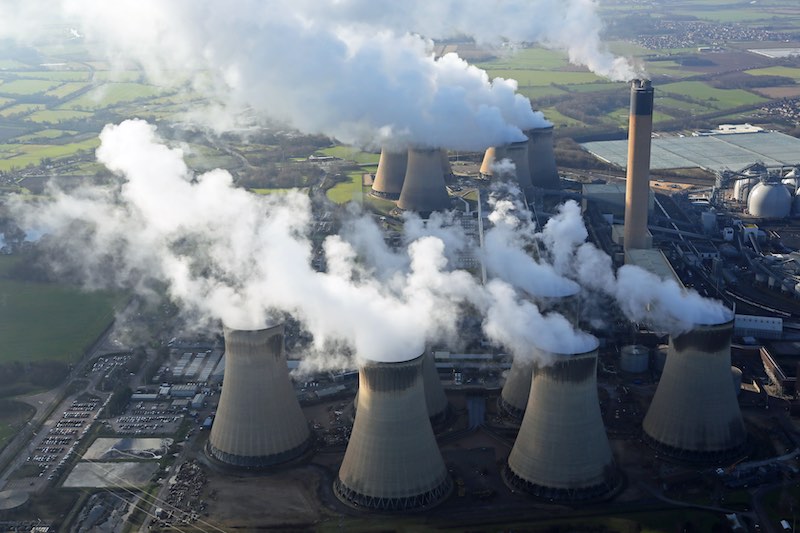UK Emissions Fell 44% Between 1990 and 2019

Greenhouse gas emissions in the United Kingdom dropped by 44% between 1990 and 2019, with the decarbonisation of the electricity system responsible for much of the progress.
The latest figures from the Office for National Statistics (ONS), released yesterday, estimate the UK’s territorial emissions at 454.8 million tonnes of carbon dioxide last year, 2.8% lower than in 2018. However, the year-on-year fall in emissions was less than the 3.6% the Department for Business, Energy and Industrial Strategy (BEIS) had expected.
Overall, emissions in 2019 were 43.8% lower than in 1990. This leaves the UK with a significant way to go to meet its target of cutting emissions by 68% of 1990 levels by 2030--a goal recently redoubled from 57%.
And green campaigners have called for even more ambitious targets of 72%-75%, which they say will be necessary to forestall climate meltdown and help the UK meet its statutory net-zero target by 2050.
The decline in emissions over recent years and decades has been driven by the cleaning up of electricity generation, particularly the near-phasing out of coal. Emissions from the energy sector dropped 8.1% between 2018 and 2019 and 65.5% between 2019 and 1990.
Over the same 29 year period, coal’s share of the fuel mix for electricity generation dropped from 65% to under 3% and is expected to be still lower for 2020. The UK has committed to closing the three remaining coal-fired power stations in Great Britain by 2024.
But while our electricity has become cleaner, decarbonisation efforts in other sectors of the economy have stalled. Emissions from transport, including cars, declined by 1.8% between 2018 and 2019 and by just 4.6% since 1990. While vehicles have become more efficient over the past three decades, any emissions reductions have been offset by increased traffic. Today, transport is responsible for 27% of all greenhouse gas emissions in the UK.
The sale of new petrol and diesel vehicles will end in the UK by 2030. However, environmentalists have warned that this ban will come too late and leave a long tail of polluting vehicles on the roads for at least a decade beyond.
The transport think tank New Automotive has calculated that a 2030 ban would cut emissions from vehicles to 46 million tonnes of CO2 by 2030, from 68 million tonnes today. However, that’s 40% higher than the interim target of cutting emissions to 32.8 million tonnes by that date, set by the Committee on Climate Change (CCC), the government’s independent climate change advisors.
Meanwhile, businesses account for 17% of the total emissions, with the residential sector holding a 15% share and agriculture 10%.
Read on our blog

With the government poised to implement tough new measures to...

Budget broadband provider TalkTalk has been notifying customers via email...

A year-long investigation by charity Citizens Advice has revealed a...

Education Secretary Nadhim Zahawi has announced a new commitment to...
